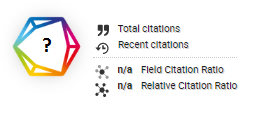Development of an Assessment Instrument for Students Discipline and Responsibility in Physics Practicum-Based Cooperative Learning
DOI:
https://doi.org/10.46984/sebatik.v29i1.2595Keywords:
Assessment Instrument, Discipline, Responsibility, Cooperative Learning, Physics PracticumAbstract
This This study aimed to develop a valid, reliable, and practical assessment instrument to measure students’ discipline and responsibility in Jigsaw-type cooperative learning based on physics practicum. The research used the Research and Development (R&D) method with development steps adapted from Borg & Gall, involving expert validation, field trials, and statistical analysis. Expert validation indicated high validity scores (87.0% for discipline, 94.7% for responsibility). The instrument was tested on 30 students, and reliability scores (Cronbach’s alpha) were 0.70 (discipline) and 0.92 (responsibility), indicating good to very high reliability. Practicality scores averaged 90.72 and 91.80, respectively, based on teacher feedback, reflecting ease of use and usefulness. The results confirm that the developed instrument is suitable for implementation in physics learning to help teachers monitor and foster character development effectively. This research also contributes significantly to educational assessment tools aligned with the Merdeka Belajar framework and the Pancasila Student Profile, offering a foundation for future enhancements and broader application in other subjects and competencies. Additionally, the integration of character education within collaborative learning environments ensures a more holistic approach to student development. The findings suggest that systematic assessment instruments are essential in supporting teachers to objectively measure affective skills, which are often overlooked in traditional classroom assessments.
References
Asbari, M., Cahyono, Y., Fahlevi, M., Purwanto, A., Mufid, A., Agistiawati, E., & Suryani, P. (2020). Impact of Work From Home (WFH) on Indonesian Teachers Performance During the Covid-19 Pandemic : An Exploratory Study. International Journal of Advanced Science and Technology, 29(5), 6235–6244. https://www.researchgate.net/publication/341413246
Asrul, A., Rosidin, U., & Abdurrahman, A. (2022). Pengembangan Instrumen Penilaian Ranah Afektif dalam Pembelajaran Fisika. Jurnal Pendidikan Fisika, 10(2), 123–135.
Authar, N., Rulyansah, A., Budiarti, R. P. N., Mardhotillah, R. R., & Alfiah, A. (2022). Pendampingan Pelaksanaan Penelitian Tindakan Kelas untuk Guru Sekolah Dasar. Indonesia Berdaya, 3(4), 871–878. https://doi.org/10.47679/ib.2022316
Bisri, M., & Ichsan, I. (2015). Instrumen Penilaian Sikap dalam Kurikulum 2013. Jurnal Evaluasi Pendidikan, 9(2), 87–96.
Borg, W. R., & Gall, M. D. (1989). Educational Research: An Introduction (5th ed.). New York: Longman.
Chen, X., Zou, D., Xie, H., & Wang, F. L. (2023). Metaverse in Education: Contributors, Cooperations, and Research Themes. IEEE Transactions on Learning Technologies, 16(6), 1111–1129. https://doi.org/10.1109/TLT.2023.3277952
Firmansyah, R., & Zain, M. S. (2021). Deskripsi Karakter Gemar Membaca Pada Mata Pelajaran IPA Di Sekolah Menengah Pertama. Journal Evaluation in Education (JEE), 2(1), 24–33. https://doi.org/10.37251/jee.v2i1.185
H. B., & Koni, A. (2013). Assesmen Pembelajaran. Jakarta: Bumi Aksara.
Hutabarat, E. (2004). Evaluasi Pembelajaran. Jurnal Ilmu Pendidikan, 6(1), 22–29.
Jacobs, G. M., Lee, G. S., & Ball, J. (2022). Cooperative Learning: Theory, Principles, and Techniques. Singapore: SEAMEO Regional Language Centre.
Lickona, T. (2019). Educating for Character: How Our Schools Can Teach Respect and Responsibility. New York: Bantam Books.
Maesaroh, S., Veryliana Purnamasari, & Mudzanatun. (2023). Penggunaan Media Interaktif Untuk Meningkatkan Hasil Belajar Siswa Pada Materi Energi Dan Perubahannya Kelas 3a. Didaktik : Jurnal Ilmiah PGSD STKIP Subang, 9(2), 4380–4389. https://doi.org/10.36989/didaktik.v9i2.1110
Majid, A. (2011). Pendidikan Karakter: Perspektif Islam. Bandung: Remaja Rosdakarya. Nurgiyantoro, B. (2011). Penilaian Pembelajaran Bahasa. Yogyakarta: BPFE.
Slavin, R. E. (2015). Cooperative Learning: Theory, Research, and Practice. Boston: Allyn & Bacon.
Sukmawa, O., Rosidin, U., & Sesunan, F. (2019). Pengembangan Instrumen Asesmen Kinerja (Performance Assessment) Praktikum Pada Mata Pelajaran Fisika Di Sma. Jurnal Pendidikan Fisika, 7(1), 116. https://doi.org/10.24127/jpf.v7i1.1397
Suryabrata, S. (2000). Metodologi Penelitian. Jakarta: Rajawali Pers.
Tiberghien, A., Viellard, L., & Buty, C. (1998). Analyzing Interactions Between Teaching and Learning: A Framework for Studying Classroom Practices. Science Education, 82(3), 351–374. Uno,
Usman, L. D. L. D. R. (2022). Profil Kemampuan Literasi Bahasa, Literasi Budaya dan Kewargaan. Indonesian Journal of Educational Development Volume, 3(3), 312–319. https://doi.org/10.5281/zenodo.7365078
Yamin, M. (2013). Strategi Pembelajaran Berbasis Kompetensi. Jakarta: Gaung Persada.
Yulya, T. (2023). Pengembangan E-Modul Pembelajaran Fisika Berbasis Etno-Stem Pada Materi Gelombang Bunyi. 2.
Zubaedi. (2011). Desain Pendidikan Karakter. Jakarta: Kencana Prenada Media.
Downloads
Published
How to Cite
Issue
Section
License
Copyright (c) 2025 Novi Tri Rahayu Ningsih, Undang Rosidin, Viyanti, I Wayan Distrik, Abdurrahman

This work is licensed under a Creative Commons Attribution 4.0 International License.
Authors retain all their rights to the published works, such as (but not limited to) the following rights; Copyright and other proprietary rights relating to the article, such as patent rights, The right to use the substance of the article in own future works, including lectures and books, The right to reproduce the article for own purposes, The right to self-archive the article








